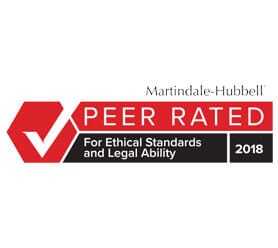



18 USC Section 1028A basically functions as an enhancement to a federal defendant who has been found guilty of various federal crimes enumerated in subsection “c” of section 1028A. Essentially, aggravated identity theft provides for an extra mandatory 24 months consecutive sentence to any sentence imposed upon the underlying crime for any person who “knowingly transfers, possesses, or uses, without lawful authority, a means of identification of another person.”
The underlying crime which triggers an additional “Aggravated Identity Theft” charge is basically any white-collar federal felony crime, including theft, embezzlement, bank fraud, most all crimes involving false statements and applications for passports, citizenship and firearms, mail, bank and/or wire fraud, social security fraud and others. This offense is rather unusual under federal law as Congress has provided for a mandatory 24 months consecutive sentence to any sentence imposed on the underlying offense. Unlike most crimes, United States Sentencing Guidelines have no applicability here. Nor does the judge have authority to reduce or raise the 24 month consecutive sentence for a conviction of Aggravated Identity Theft. Probation and/or a suspended sentence are specifically prohibited.
There can be little doubt that Congress, in enacting the separate crime of Aggravated Identity Theft in 2004 provided federal prosecutors with a weapon they may use at their discretion in identity theft cases. However, not all is lost and the situation is not hopeless. Oftentimes a prosecutor will add a count of Aggravated Identity Theft merely as a bargaining tool, hoping the defense attorney will reach a plea agreement where the Aggravated Identity Theft count is dismissed in exchange for a guilty plea to the underlying federal felony criminal offense. Only an experienced federal criminal lawyer, such as Joe Shemaria, would be able to guide you through the extremely intricate and the constantly changing legal precedents in the area of Aggravated Identity Theft.
To begin with, to be found guilty of this offense, the government must prove beyond a reasonable doubt that a defendant used a “means of identification of another person.” In 18 USC section 1028, this term means any name or number that may be used, either alone or in conjunction with any other information, to identify a specific individual. This could include the name of another individual, social security number, date of birth, official state or government issued driver’s license or identification number, alien registration number, government passport number, employer or taxpayer identification number, a fingerprint, a retina image or other unique physical representation. They can also include, however, a unique electronic identification number, address or routing code, or telecommunication identifying information or access device. Basically, a “means of identification” is any name or number that may be used to identify a specific person. That person must be real, even though the person may be dead.
Next, the government must prove beyond a reasonable doubt that the defendant knowingly transferred, possessed and/or used a means of identification of another person. In 2009, the United States Supreme Court held that the government must prove beyond a reasonable doubt that the defendant knew that the means of identification at issue belonged to another person. All this may not be a real big issue to the defendant charged with using somebody else’s personal identification while cashing a check at a bank where that person has an account as it is rather obvious that a defendant in the situation would obviously be aware that the means of identification he was using did, in fact, belong to another real person. However, the situation could be totally different where, as is frequently happening in many of the Border States, a noncitizen goes into a fraudulent immigration or “legal assistance” office and, for a fee, comes out with a phony birth certificate in somebody else’s name. As stated, the government must prove beyond a reasonable doubt that the defendant knew that the means of identification (here, the birth certificate) belonged to another real person. In many of these cases, just the opposite is represented to the unsuspecting soon-to-be defendant.
The federal government must also prove that the federal defendant charged with Aggravated Identity Theft transferred, possessed and/or used the personal information of another “without lawful authority.” So if somebody’s aunt Tillie in Puerto Rico happens to send her birth certificate to a young niece who is not a United States citizen, but is living in Laredo, Texas, as a gift to assist her in trying to help her get into college in the state of Texas, it seems doubtful that the government could prove beyond a reasonable doubt that the defendant was using the personal information of her aunt “without lawful authority,” as the aunt clearly consented to the niece’s use.
Suffice it to say that the Aggravated Identity Theft (18 USC section 1028A) lends itself to tremendous leverage for the United States Department of Justice and every federal prosecutor who can add this section to an indictment. This summary is not intended to be used as a legal guide and is only for General Information to help you select the right federal criminal defense lawyer for you. Criminal attorneys practicing solely in state courts, at least in California, would have no reason to be knowledgeable for defending against this charge. An experienced federal criminal defense lawyer, such as Joe Shemaria, can give you specific advice on the unique facts of your case.
Suffice it to say that the aggravated identity theft (18 USC section 1028A) lends itself to tremendous leverage for the United States Department of Justice and every federal prosecutor who can add this section to an indictment. This summary is not intended to be used as a legal guide and is only for general information to help you select the right federal criminal defense lawyer for you. Criminal attorneys practicing solely in state courts, at least in California, would have no reason to be knowledgeable for defending against this charge. An experienced federal criminal defense lawyer, such as Joe Shemaria, can give you specific advice on the unique facts of your case.
Call 310-278-2660 Today For The Tough Defense You Need





9171 Wilshire Blvd
Suite 500
Beverly Hills, CA 90210
Beverly Hills Law Office Map